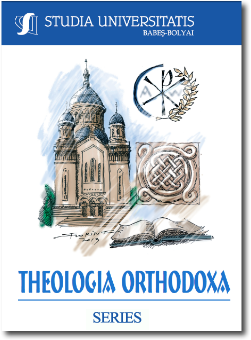THE RELIGIOUS POLICY OF EMPEROR HERACLIUS (610-641) IN REGARDS TO HEBREWS: PREMISES, ACCEPTANCE AND CONSEQUENCES
THE RELIGIOUS POLICY OF EMPEROR HERACLIUS (610-641) IN REGARDS TO HEBREWS: PREMISES, ACCEPTANCE AND CONSEQUENCES
Author(s): Remus Mihai FeraruSubject(s): Theology and Religion
Published by: Studia Universitatis Babes-Bolyai
Keywords: religious policy; emperor Heraclius; Hebrews; conversion; baptism.
Summary/Abstract: Our study sets out to discuss the religious policy of Emperor Heraclius (610-641) in regards to Hebrews. Before the relic of the Holy Cross was reinstalled in Jerusalem (31 March 630), Emperor Heraclius's relations with the Hebrews do not seem to be tense. Starting with 630, Heraclius retaliates against the Hebrews as a punishment for their collaboration with the Persians, as well as for their involvement in the massacre of Christians when Jerusalem was conquered by the Persians (614). The Emperor issued an edict for the forced conversion of Hebrews to Christianity. The scope of this edict covered the entire Byzantine Empire, but it was only enforced in Cartagena (May 31, 632). Saint Maximus the Confessor condemns Heraclius's decision to forcibly convert Cartagena Hebrews to Christianity. Heraclius's decree was contested among the Hebrews. Their forced christening caused their migration to Persia. Also, Heraclius's anti-Hebrew policy determined them to facilitate the Arab expansion in Byzantine territories.
Journal: Studia Universitatis Babes-Bolyai - Theologia Orthodoxa
- Issue Year: LXIII/2018
- Issue No: 1
- Page Range: 27-40
- Page Count: 14
- Language: English

